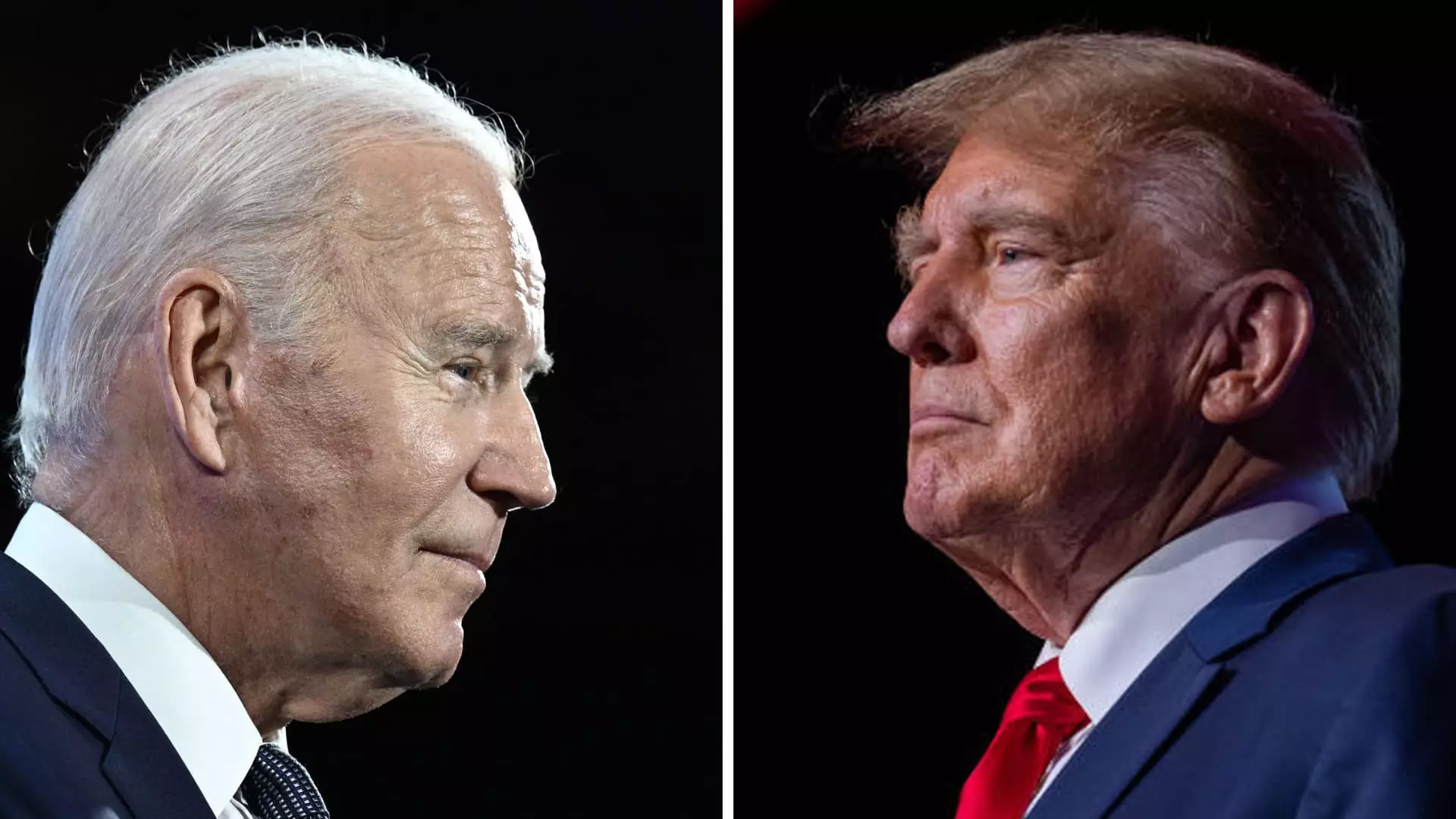President Joe Biden and former President Donald Trump are set to engage in the first presidential debate of the 2024 general election, where they will have the opportunity to discuss their stance on tax policy. One of the key issues at hand is the expiration of Republicans’ tax breaks that were implemented through the Tax Cuts and Jobs Act of 2017 (TCJA). If Congress does not take action, several provisions, including lower federal income tax brackets, an increased child tax credit, and higher estate and gift tax exemptions, will expire after 2025. According to the Tax Foundation, more than 60% of tax filers could potentially face higher taxes in 2026 if these TCJA provisions are allowed to lapse.
Both Biden and Trump have expressed a desire to renew TCJA provisions for the majority of Americans. However, concerns have been raised about the cost of extending these provisions, especially given the federal budget deficit. Fully extending TCJA provisions could result in an estimated $4.6 trillion increase in the deficit over the next decade, as reported by the Congressional Budget Office in May. Steve Rosenthal, a senior fellow at the Urban-Brookings Tax Policy Center, noted that Biden’s tax agenda has remained consistent over the years, with a focus on raising taxes on the ultra-wealthy and corporations to fund TCJA extensions for those earning less than $400,000.
While Biden has outlined specific tax proposals in his fiscal year 2025 budget, the future of these measures remains uncertain, particularly with the control of Congress up in the air. On the other hand, Trump has expressed support for fully extending expiring TCJA provisions and has advocated for tariffs as a means of taxation. The unpredictability of Trump’s tax policy stance makes it challenging to determine the seriousness of his proposed ideas. Erica York, a senior economist at the Tax Foundation, highlighted the economic impact of tariffs, emphasizing that they can increase input costs for American businesses and put them at a disadvantage when competing globally.
Both Trump and Biden have supported tariffs to varying degrees, with Trump implementing tariffs on countries such as China, Mexico, and the European Union during his presidency. Some of these tariffs have remained in place under the Biden administration, adding a layer of complexity to the discussion on tax policy during the upcoming debate. The debate presents an opportunity for the candidates to articulate their positions on tariffs and provide clarity on how they plan to navigate the economic implications of these trade policies.
The 2024 presidential debate will serve as a platform for Biden and Trump to address critical tax policy issues that directly impact American taxpayers. The expiration of TCJA provisions, the cost of extending tax breaks, and the use of tariffs as a taxation tool are key topics that will be at the forefront of the discussion. Voters can expect to gain valuable insights into the candidates’ tax policy agendas and how they plan to shape the economic landscape in the years to come.

